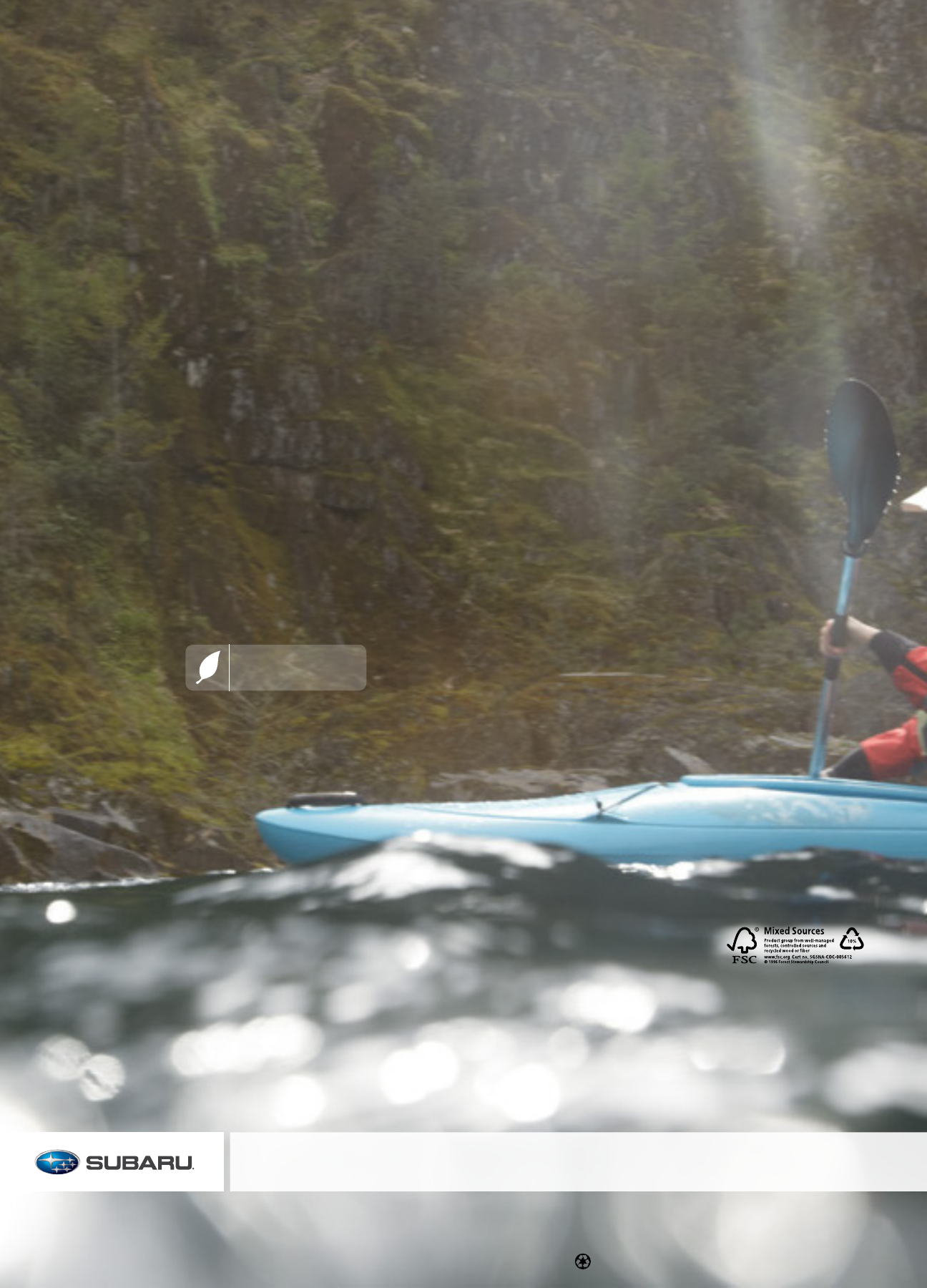
2 0 1 1 S u b a r u O u t b a c k
Love. It’s what makes a Subaru, a Subaru.
This brochure is printed in the U.S.A. on recycled paper. ©2010 Subaru of America, Inc. 11.OBK.SRB.525 (S-10788, 200K, 5/10, CG)
These brochures were printed with vegetable-based inks and produced using a “Green Printing Process” and FSC standards. The Forest Stewardship Council (FSC) is an
international organization that brings people together to find solutions which promote responsible stewardship of the world’s forests and environments.
By producing these brochures in a green way rather than by traditional methods, we saved 128 trees preserved for the future; 369 lbs water-borne waste not created; 54,288 gallons
wastewater flow saved; 6,007 lbs solid waste not generated; 11,827 lbs net greenhouse gases prevented; 90,524,490 BTUs energy not consumed.
1 Based on R. L. Polk & Co. registration data in the U.S. 1999 to 2009. 2 2011 Forester, Legacy and Outback 2.5L non-turbo models certified as Partial Zero Emission Vehicle
(PZEV) are available in all 50 states. Only those sold and registered in California, Connecticut, Maine, Maryland, Massachusetts, New Jersey, New Mexico, New York, Rhode Island
and Vermont will be eligible for the 15 years/150,000 mile emission warranty.
Outback
2011
Find out more about our efforts to
keep it cleaner and greener.
subaru.com/environment
The Outback may be uniquely designed for getting out there, but at Subaru, we put just as
much emphasis on not leaving it out there. First, we build vehicles for maximum durability,
because more time spent on the road is less time in a landfill. It’s why 95% of the vehicles
we’ve built in the last 10 years are still on the road today.
1
We also work diligently to cut
waste before the car ever rolls out of the factory. In 2004, Subaru of Indiana Automotive,
Inc. (SIA) became the first manufacturing facility in the U.S. to reach zero landfill status—
nothing from its manufacturing efforts ever goes into a landfill. Subaru facilities in Japan
have achieved similar goals in reusing and recycling. And, because clear skies are just
as important as clean landscapes, the Outback is one of the few SUVs to achieve Partial
Zero Emission Vehicle—PZEV
2
—status. It achieves such cleanliness without the negative
environmental impact required to manufacture many vehicles with battery-based drive
systems, and without compromising performance and versatility.
The earth isn’t disposable.
Neither is a Subaru.


















